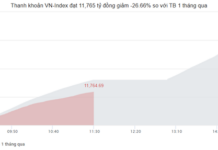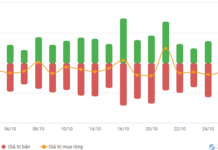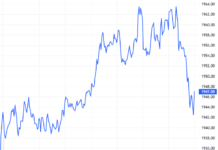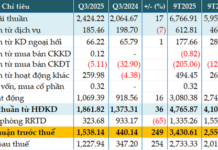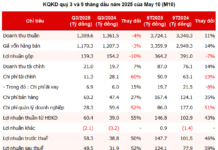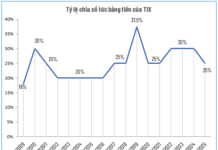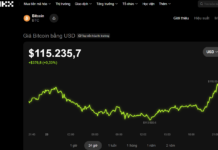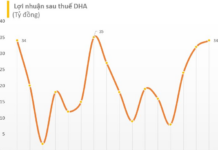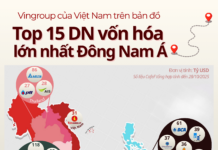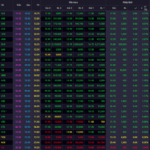 |
Market Prospects
In the race to develop a digital economy, Vietnam has been a shining star in terms of growth rate in recent years, leading the way in Southeast Asia. According to the E-Conomy SEA Report by Google, Temasek, and Bain, the overall size of Vietnam’s digital economy reached $30 billion in 2023 and is projected to grow to $45 billion by 2025. The growth rate is quite impressive, with 38% in 2022 and 19% in 2023. This clearly reflects the demand and potential of the data industry.
A bright spot for Vietnam’s data industry is the formation and development of data centers by domestic and foreign enterprises. According to the Ministry of Public Security, there are currently nine enterprises providing data center services with 43 data centers nationwide, 571,000 servers, and 54.7 million physical cores.
In addition, regarding data center and cloud computing infrastructure, there are 13 enterprises providing these services, with 45 data centers and 28,000 racks. The demand for these services is estimated to continue to increase in the coming years, with the market size potentially reaching $1.5 billion by 2026.
This outlook is in line with JLL’s view on the strong growth potential of the data center services market in Vietnam, as presented in the report “Vietnam Data Centers – Opportunities on the Horizon,” published in May 2024.
|
The data industry in Vietnam has not yet formed systematically and created a complete ecosystem to meet the needs of the digital economy. |
The recently enacted Telecommunications Law of 2023 includes new provisions on telecommunications services, including cloud computing and data center services. This can be seen as an important boost and support for the robust development of the data center market in Vietnam in the coming years.
Moreover, in recent years, the state has initiated and established several valuable national databases. Interconnection and data sharing have been initially implemented, contributing to administrative reforms and supporting the business operations of enterprises with specific industries such as commercial banks.
Bottlenecks in the Data Economy
However, the data industry in Vietnam has not yet formed systematically and created a complete ecosystem to meet the demands of the digital economy. Data sharing and exploitation activities are still in their infancy, spontaneous, and lack a systematic approach. Moreover, illegal data exchange and transactions are rampant and quite severe.
According to the Ministry of Public Security, in just two years, 2019 and 2020, the ministry detected and handled hundreds of organizations and individuals involved in illegal personal data trading. This activity even occurred on a large scale and in an organized manner. The amount of personal data (including sensitive, internal, and privacy-related information) illegally collected and traded amounted to nearly 1,300 Gb.
This indicates that data exchange and transactions always carry a series of risks regarding the leakage of sensitive information and personal data of citizens, significantly impacting social order and safety and national security. From another perspective, these statistics also reflect the actual needs of economic entities for data and data-derived products and services, which are not yet fully met.
The National Data Strategy, issued under Decision No. 142/QD-TTg dated February 2, 2024, by the Prime Minister, outlined a direction to build data exchange platforms in the future. However, the current law lacks provisions determining the legal nature and data standards and mechanisms to regulate legal relationships regarding data exchange, transactions, and the use of data and related products and services. At the same time, regulations related to personal data protection and information security are only in the initial stages of implementation and need further improvement.
Therefore, the simultaneous development of three draft laws, including the Data Law, the Personal Data Protection Law, and the Digital Technology Industry Law, is a strategic and correct step for Vietnam. If designed synchronously and consistently in their approach, these three laws can create a complete legal framework for the formation of a sustainable and safe data industry.
Luu Minh Sang (University of Economics and Law, Vietnam National University, Ho Chi Minh City)
“3 Investment Products That Will Attract Money in the Future, Unknown to Many”
In a recent share, Trang Le, Head of Research at JLL Vietnam, revealed the top 3 product lines that will attract investors in the future. However, investors need to pay special attention to the operational aspect in order to generate good revenue.
The Data Defense War in the AI Era: Are Vietnamese Businesses Prepared?
Introducing the cutting-edge AI system that is revolutionizing the industry. With its advanced capabilities, this system has been designed to withstand attacks and manipulate data and algorithms from the very outset. The complexity of this AI technology ensures that any potential vulnerabilities are addressed, resulting in a robust and reliable solution. By training the model to recognize and counter these threats, we’ve created an intelligent system that delivers accurate results with unparalleled consistency.

